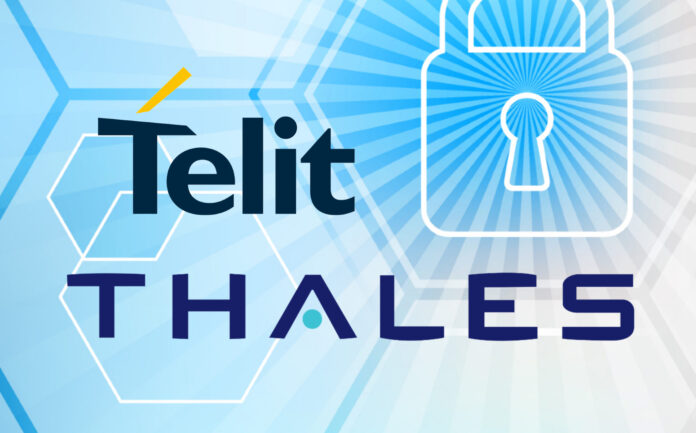Italian-American IoT module maker Telit is to acquire the cellular IoT unit of French aerospace, defence, and security company Thales in return for a quarter-share of its expanded industrial IoT business. Thales will take a 25 percent stake in the expanded Telit business, headquartered in California, which will be rebranded as Telit Cinterion. Telit’s automotive IoT division will be spun-off and (and “manage separately”) of the new Telit Cinterion.
Telit Cinterion will focus exclusively on industrial IoT, and make security its calling card. The deal, expected to close in the fourth quarter, pending the share agreement and sundry regulatory approvals, covers Thales’ entire portfolio of cellular IoT modules, gateways, and data (modem) cards – which connect variously to NB-IoT, LTE-M, LTE, and 5G. Its IoT module business has around 550 staff in 23 countries, and generated sales of €300 million in 2021.
The combined entity, Telit Cinterion, taking its new brand appendage from the Thales line of cellular IoT modules (which took the name originally from German M2M specialist Cinterion, following its purchase by Gemalto in 2014, acquired by Thales in 2019), will be a “leading Western” power for IoT modules, the pair said. “Telit Cinterion will leverage Thales’ expertise in IoT security across SIM technology, modules, and connectivity,” said a statement.
It continued: “The intended transaction establishes Telit Cinterion as a leading Western provider of IoT solutions, expanding the company’s presence in growing industrial IoT segments and end markets including payment systems, energy, e-health, and security. It also enhances the company’s ability to respond more expertly to growing demand for cyber-secure IoT solutions in modules and cellular connectivity, thanks to leading technologies from Thales.”
Paolo Dal Pino, chief executive at Telit, said: “This transaction is arguably the most impactful one for Telit’s competitiveness. While it will boost our ability to address customer needs more precisely from a richer portfolio, it will also enable us to deliver all new offerings derived from the experience, expertise, and the DNA of two companies that have made security and quality part of their brand promise from the very beginning.”
Philippe Vallée, executive vice president for digital identity and security at Thales, said: “The combination brings together complementary strengths. The business will provide a unique value proposition in a highly competitive global IoT market and allow Thales to focus its investments on aerospace, defence and security, and digital identity and security. The new combination will rely on a unique set of expertise… and also benefit from complementary product portfolios and Thales’s experience in cellular connectivity.”

